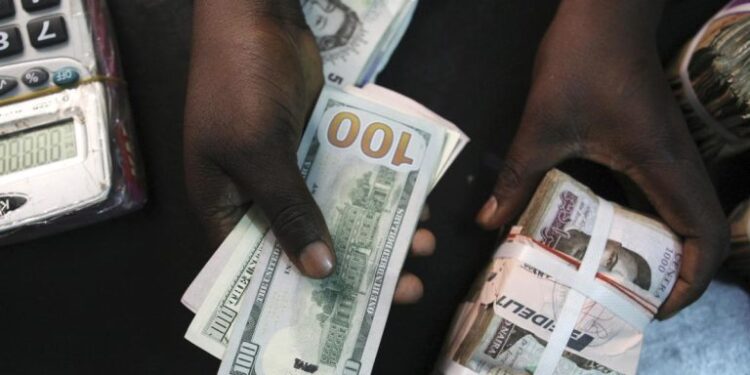Curious about the current exchange rate for the US Dollar to the Nigerian Naira on the black market, also referred to as the parallel market (Aboki fx)? Here is the rate as of August 2, 2024.
The dollar to naira exchange rate on the black market (Aboki dollar rate) is as follows:
– At the Lagos Parallel Market, traders are buying dollars for ₦1605 and selling them for ₦1615 as of Thursday, August 1, 2024, according to information from Bureau De Change (BDC) sources.
Important Note
The Central Bank of Nigeria (CBN) does not recognize or endorse the parallel market. It advises individuals seeking foreign exchange to use their banks for such transactions.
Dollar to Naira Black Market Rate Today
– Buying Rate: ₦1605
– Selling Rate: ₦1615
Dollar to Naira CBN Rate Today
– Buying Rate: ₦1610
– Selling Rate: ₦1611
Please be aware that the rates for buying or selling foreign exchange may vary from the figures listed in this article due to fluctuations in market conditions.
Tinubu Meets with Banking Leaders to Discuss New Windfall Tax
President Bola Ahmed Tinubu recently held a private meeting with leaders from Nigeria’s commercial banking sector at the State House in Abuja to address the newly implemented windfall tax.
The meeting, spearheaded by Finance Minister Wale Edun, included notable attendees such as Tony Elumelu, Chairman of United Bank for Africa, and Ladi Balogun, Group CEO of First City Monument Bank.
The windfall tax, introduced by President Tinubu in mid-July as part of an amendment to the 2023 Finance Act, targets the significant foreign exchange gains reported by banks in 2023. The goal of this tax is to generate revenue for vital infrastructure, education, and healthcare projects under the Renewed Hope Agenda.
Despite warnings from Moody’s Investors Service and other analysts about the tax’s potential impact on bank profits and financial stability, the Senate recently passed the amendment.
The amendment increased the windfall levy from 50% to 70% and extended its applicability to all profits from foreign exchange transactions through 2025.
Critics argue that the retroactive nature of the tax could lead to legal challenges and deter future investments, possibly shifting the tax burden to customers.











